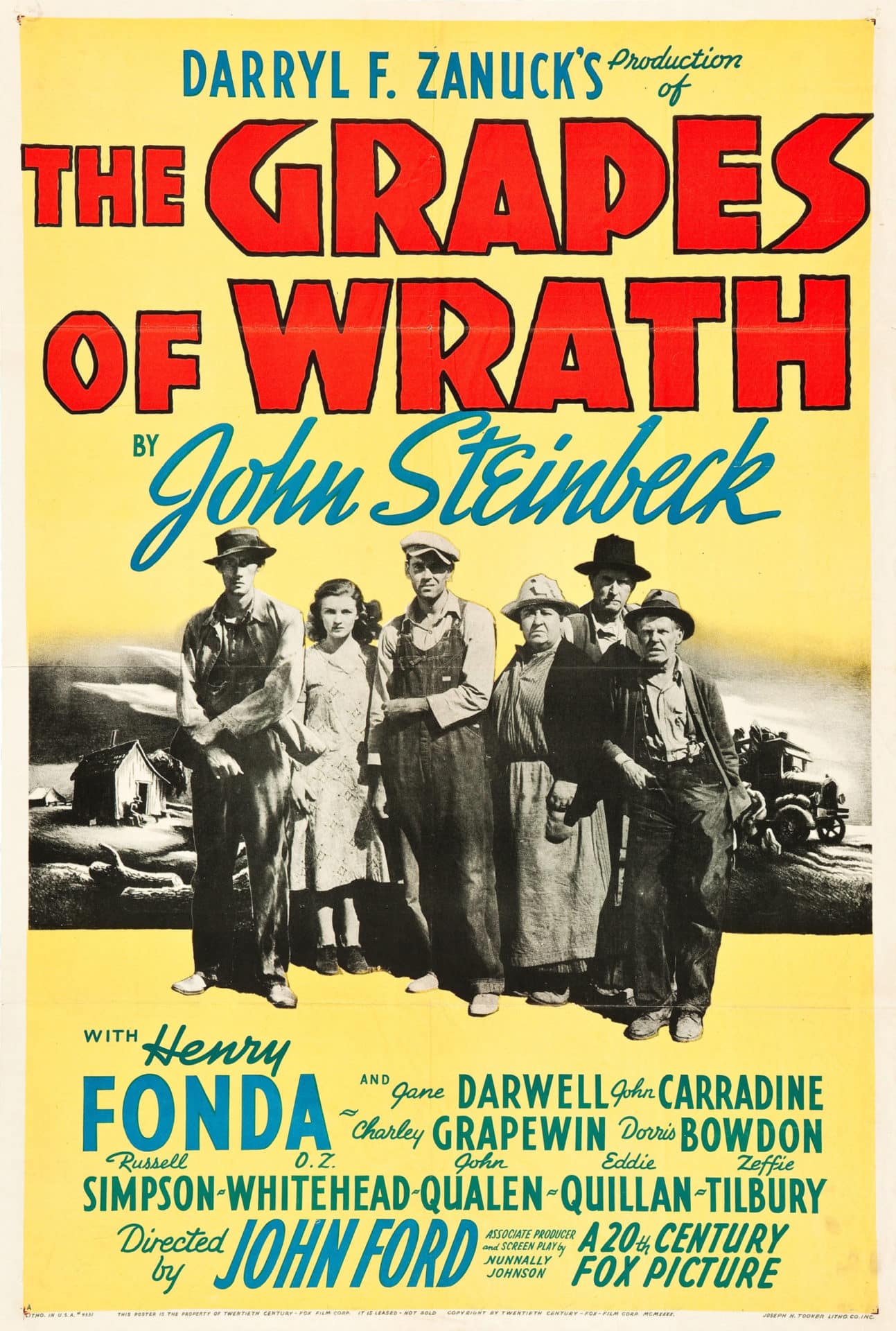
- Starring
- Henry Fonda, Jane Darwell, John Carradine
- Writer
- Nunnally Johnson
- Director
- John Ford
- Rating
- n/a
- Running TIme
- 129 minutes
Overall Score
Rating Summary
The Grapes of Wrath tells the story of the Oklahoma-native Joad family, lead by son Tom (Fonda) and Ma (Darwell) as they become migrant workers in California after they lose their farm during the Great Depression in the 1930s. Along the way of their arduous journey, they receive help from former preacher Jim Casy (Carradine) and face various hardships across their journey, including disastrous conflict with the police, but in the end they persevere and find a kernel of hope by the end of their journey.
This is one of the most purely vital films viewers will ever see, showing a real-life, large-scale event that ruined the lives of so many people from a very ordinary perspective, through the eyes of everyday people, fictional they may be. Its characters carry so much complicated history, and they are so utterly relatable. They are always interesting to watch no matter which one the film focuses on, whether it’s the main characters, or the minor ones. It is a major testament to how screenwriter Nunnally Johnson distills the essence of John Steinbeck’s novel to make it into something different yet still emotionally resonant in the same manner. This material especially has as much gravity now as it did over 80 years ago.
On some level, many have probably seen this story in some shape or form before, from the archetypes of a flawed but moral underdog main protagonist, to the strong-willed matriarch, to even just the overall beats of the narrative, but that complaint is minor when the environment, settings, characters, and relationships are so extensively fleshed out with such attention to detail. One recognizes all the little nuances because John Ford as a director is just so good at doing that. Beyond capturing the scope of the harrowing events that inform the narrative, and orchestrating some of the most striking frames ever captured in cinematic history, he simply trusts the actors to do their magic, and the events to fold out themselves; he is such a natural director in that way.
Fonda, Darwell, and Carradine deliver some of the best acting ever recorded on film here; they convey so much with facial expressions that actual lines of dialogue could’ve ruined through redundant exposition. Of course the way they all deliver their lines is just magnetic. Fonda makes Tom Joad into an ultimate underdog, who comes to understand the importance of sticking up for the little guy. Darwell is utterly heartbreaking as Ma as she realizes she eventually has to let Tom go, while still trying her hardest to hold the family together. Carradine is incredibly soulful as Jim Casy, who goes through his own moving arc of rediscovering his lost faith. Supporting them is an incredible supporting cast of character actors.
Gregg Toland’s cinematography truly becomes a character of its own; his experimental use of deep focus and wide-angle lenses remains unparalleled, and The Grapes of Wrath might just be the best showcase for his talents, more so than even Citizen Kane. The way he lights the Joads’ faces makes them seem pale and ghostly, and his photography on the roads makes them simultaneously glow while still seeming barren and dusty. Toland’s cinematography tells a whole other side of the story that’s presented on screen, pulling viewers further into it.
Truly deserving of its reputation as one of the greatest films of all time, The Grapes of Wrath is a poetic and haunting slice of Americana that hasn’t been matched since when it was first released, and might just be the best work of everyone involved.
still courtesy of Film Inc.
Follow me on Twitter, Instagram, and Letterboxd.
If you liked this, please read our other reviews here and don’t forget to follow us on Twitter or Instagram or like us on Facebook.
Discover more from
Subscribe to get the latest posts sent to your email.

